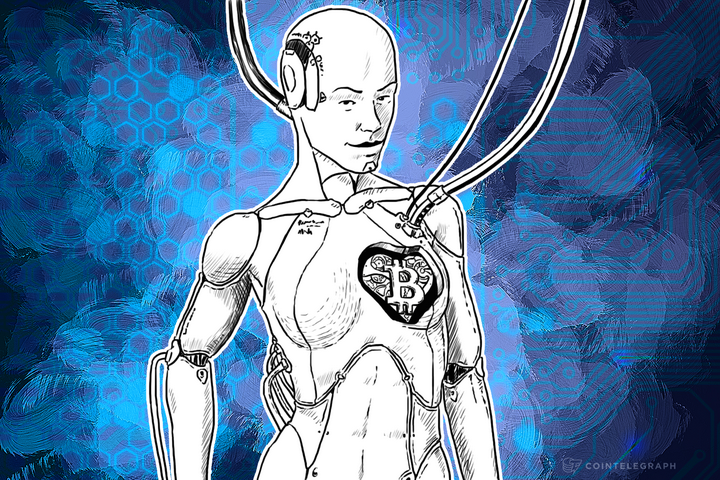In recent news, Elon Musk and Steven Hawking reportedly foresee a potentially dangerous future in the advancement of AI (artificial intelligence). Mostly through a centralized AI that is prone to regulation. One of the possible paths of natural progression is for AI to transition towards a decentralized blockchain technology.
The great power of Bitcoin and blockchain technology is that it prompts a rethinking of nearly every existing problem. The issue of Friendly AI, how we can effectively transform into a society with human-friendly artificial intelligence (AI), is exactly such a problem.
There are at least five key features of blockchain technology that suggest a path to Friendly AI is not only possible, but could be likely.

1: Reputation
Reputation has proved an important mechanism in our current physical-world and digital-world transactions and is likely to persist in the future. People care about their reputation and take measures to enhance and preserve it (LinkedIn, Yelp, etc.).
Already reputation is emerging as a required key feature in blockchain networks for smart contracts (examples: Eris by Project Ðouglas, TrustDavis). Agents, human and otherwise, operating on networks in the future could likely similarly care about their reputation and take measures to maintain it.
2: Resource Argument
As the blockchain’s digital footprint expands, it will directly and indirectly consume real-world resources. These resources such as storage, CPU/GPU cycles, and memory require raw materials and energy consumption. This could come in the form of independent resources or more complete bundles such as instant decentralized virtual machines.
The blockchain AI may be competing in the resource economy alongside human and all other needs, and can more effectively compete by being friendly. Because Blockchain AI must obtain physical-world resources, if the AI is not friendly, its ability to obtain resources may be limited and expensive, and thus Friendly AI is produced.

3: Consensus Models
The blockchain can operate as a decentralized technology because there is an independent third-party mechanism, mining, which reviews and records transactions. Only bonafide transactions from ‘good players’ are able to be confirmed and recorded.
This suggests that known malicious players would be unable to execute their transactions, and thus only friendly players (human or AI) would be able to conduct a survivable level of transactions. Even bad players masquerading as good players would have to be de facto good players because they too need their transactions to be executed.
4: Pleasant Journey
The technical specifications of the code dictate every detail of how consensus models, currency transactions, and smart contracts operate. This will give rise to the blockchain’s connected machines having their own AI cultural behavior regarding resource management and utilization.
Blockchains with specifications having the least aggressive approach to resource acquisition and securing the network could be most symbiotic and therefore produce a Friendly AI ecosystem. The blockchain AI must enable cost efficiency in every transaction, including human to human, human to machine, and machine to machine transactions.
5: Economics
The current world is based on economics as a fundamental organizing model, and it is likely that economics as an infrastructure could underlie the future world too. Economics as a model means that rational agents conduct operations based on goals in concert with other agents and approval mechanisms.
Since the world is game-theoretic - with ongoing interactions, not one-off transactions - agents are incentivized to ‘play well’ and to be friendly and responsible players, not malicious unfriendly players.
Conclusion
These five reasons describe how blockchain technology solves the Friendly AI problem. Certainly there are many potential constraints and limitations to these ideas, and also possibly other ways that blockchain technology could be a mechanism for realizing Friendly AI in contrast to the concerns put forth by Elon Musk and Professor Hawking.

Can a trust-less and protocol-based network prevent the ‘Rise of the Machines’ apocalypse we so often see portrayed in Hollywood movies? Or perhaps the blockchain and other innovations could help humanity secure a more benevolent and egalitarian path of development? Please post your thoughts and comments below.
About the authors
Nam Huynh is a consultant at A True Network (www.atruenetwork.com) providing solutions marketing and business development for innovative companies. He has been involved with technologies including Internet of Things (IoT), System on a Chip (SoC) hardware, IT security software, and the blockchain. He is the Founder of Coinnovation (www.coinnovation.io) that focuses on building software for the blockchain.
Melanie Swan is the Founder of the Institute for Blockchain Studies (www.blockchainstudies.org)
Did you enjoy this article? You may also be interested in reading these ones:



